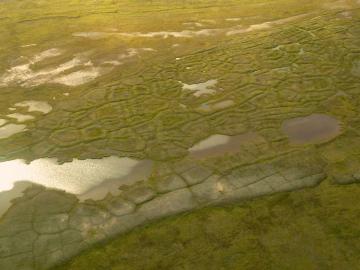
Filter News
Area of Research
News Topics
- (-) Chemical Sciences (24)
- (-) Computer Science (23)
- 3-D Printing/Advanced Manufacturing (21)
- Advanced Reactors (3)
- Artificial Intelligence (26)
- Big Data (10)
- Bioenergy (22)
- Biology (29)
- Biomedical (7)
- Biotechnology (6)
- Buildings (14)
- Clean Water (5)
- Composites (6)
- Coronavirus (4)
- Critical Materials (7)
- Cybersecurity (9)
- Education (3)
- Emergency (1)
- Energy Storage (21)
- Environment (43)
- Exascale Computing (15)
- Fossil Energy (2)
- Frontier (19)
- Fusion (10)
- Grid (16)
- High-Performance Computing (33)
- Hydropower (3)
- Irradiation (2)
- Isotopes (11)
- Machine Learning (15)
- Materials (59)
- Materials Science (18)
- Mathematics (2)
- Mercury (2)
- Microelectronics (2)
- Microscopy (7)
- Molten Salt (1)
- Nanotechnology (7)
- National Security (21)
- Neutron Science (32)
- Nuclear Energy (24)
- Partnerships (24)
- Physics (14)
- Polymers (4)
- Quantum Computing (12)
- Quantum Science (9)
- Security (3)
- Simulation (29)
- Software (1)
- Space Exploration (6)
- Summit (9)
- Transportation (18)
Media Contacts

Scientist-inventors from ORNL will present seven new technologies during the Technology Innovation Showcase on Friday, July 14, from 8 a.m.–4 p.m. at the Joint Institute for Computational Sciences on ORNL’s campus.

An innovative and sustainable chemistry developed at ORNL for capturing carbon dioxide has been licensed to Holocene, a Knoxville-based startup focused on designing and building plants that remove carbon dioxide

When reading the novel Jurassic Park as a teenager, Jerry Parks found the passages about gene sequencing and supercomputers fascinating, but never imagined he might someday pursue such futuristic-sounding science.

Computing pioneer Jack Dongarra has been elected to the National Academy of Sciences in recognition of his distinguished and continuing achievements in original research.

Xiao-Ying Yu, a distinguished scientist in the Materials Science and Technology Division of the Department of Energy’s Oak Ridge National Laboratory, has recently been chosen for several prominent editorial roles.

Oak Ridge National Laboratory scientists exploring bioenergy plant genetics have made a surprising discovery: a protein domain that could lead to new COVID-19 treatments.

ORNL scientists combined two ligands, or metal-binding molecules, to target light and heavy lanthanides simultaneously for exceptionally efficient separation.

Benjamin Manard has been named to the editorial board of Applied Spectroscopy Practica, serving as an associate editor.

Environmental scientists at ORNL have recently expanded collaborations with minority-serving institutions and historically Black colleges and universities across the nation to broaden the experiences and skills of student scientists while bringing fresh insights to the national lab’s missions.

Oak Ridge National Laboratory scientists set out to address one of the biggest uncertainties about how carbon-rich permafrost will respond to gradual sinking of the land surface as temperatures rise.


